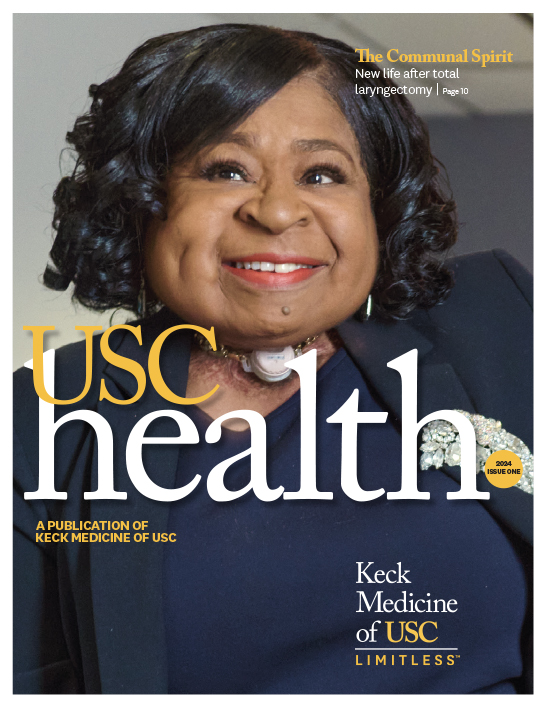
What lifestyle changes can you make now — and how might they pay off later? Read about two simple strategies to support long-term wellness.
As our lives become busier and more complicated, it can be difficult to find time for physical fitness and preventive measures to keep from getting sick or injured.
But even one small improvement in our daily activities can make a big difference in the long run.
Two physicians from Keck Medicine of USC weigh in on the Big Question:
Gregory Taylor, MD, MBA, geriatrician, Keck Signature Care
After more than five years of taking care of thousands of C-suite executives and busy professionals at Keck Medicine’s downtown Los Angeles private practice, I developed the following hypothesis: if you leave your physical activity and nutrition to chance, you will develop a chronic disease by age 60.
How many of us treat our automobiles better than ourselves with regular maintenance, premium fuel and fancy accessories? Fundamental laws of nature explain that the universe tends to move from ordered behavior to disorder and uncertainty.

“If you leave your physical activity and nutrition to chance, you will develop a chronic disease by age 60.”
Gregory Taylor, MD, MBA
That’s right: the default pathway for our health is for it to get worse — unless you actively reduce chance.
To eliminate chance in my life, I have created the Life Operational Score. The tool is designed to encourage and measure the benefit of exercise done per hour while at work.
I have a whiteboard in my office on which I document exercises done, like push-ups and squats, per hour, per day. Every Monday morning, I review my exercise log which affirms whether or not I contributed to my life score.
I encourage everyone not to leave our physical activity and nutrition to chance.
Eric Tan, MD, foot and ankle specialist, USC Orthopaedic Surgery
There are never enough hours in the day. From work obligations to family activities, it can be
difficult if not impossible to find time to focus on ourselves.
While all of us would like to be able to spend an hour each day at the gym or exercising, it is not always practical given our busy schedules. Just as saving a dollar here and there can lead to significant savings over time, the same thing is true with physical activity.

“An easy thing to do is walk whenever you can.”
Eric Tan, MD
Small changes to your daily routine can add up to long-term benefits to your health. An easy thing to do is walk whenever you can.
Park a little farther than you usually do. Take the stairs instead of the elevator or escalator. Stand and move instead of sitting around. Instead of spending your break on the computer or phone, take a walk around the building or outside to get some fresh air.
These minor changes to your routine will help you feel better and pay dividends over time.
Topics


